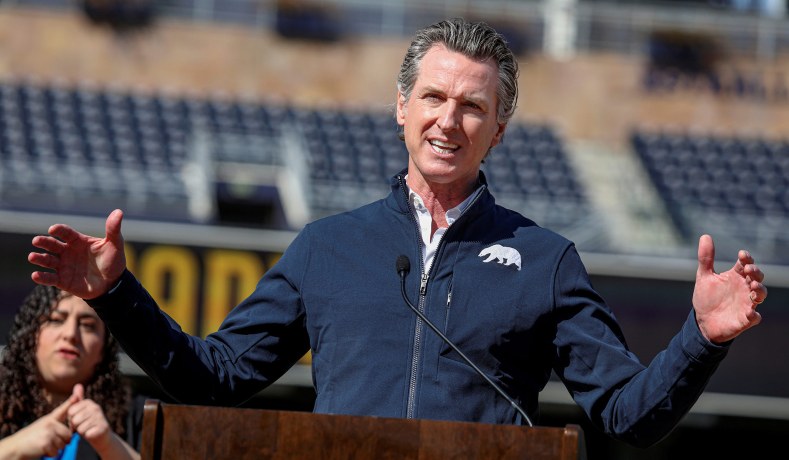
Even for deep-blue California, this progressive has gone too far.
California governor Gavin Newsom is a princeling of progressivism who has ascended to the summit of political power in one of the bluest states in the country, and yet is in real danger of suffering a humiliating defeat.
In a few weeks, he could be recalled and, after a lifetime of political striving, replaced by a conservative talk-radio host who has thought about holding elected office for about five minutes.
Recall is a blunt instrument. There’s no denying that it is bizarre that Larry Elder, the leading alternative candidate, could replace Newsom after getting less than 20 percent of the vote. The way the recall works is that voters are first asked whether or not to recall Newsom. If a majority says “yes,” he is gone. Then, whichever candidate gets the most votes on the replacement ballot, even if it’s a small plurality, becomes governor.
Recall is a well-established feature of the California system. It has been in the state’s constitution since 1911, and, of course, was used most recently when Gray Davis was recalled and replaced by Arnold Schwarzenegger in 2003.
Efforts to portray it as undemocratic and unconstitutional make no sense. The recall is decided by the thoroughly democratic method of seeing what and who gets the most votes. Newsom supporters have the power to stop his ouster simply by outvoting, even by one ballot, the supporters of the recall.
If there is no credible Democrat among the replacement candidates, that was a deliberate strategic choice of the party to make the recall a contest between an impeccably progressive governor and a motley group of Republicans. The calculation may pay off, but it is a risk that makes the Elder scenario plausible.
The bottom line is that recall is an escape valve in a state with an entrenched political monoculture. It is the only plausible tool available to deliver a well-deserved personal rebuke to Newsom and an unmistakable message to the state’s political establishment that it is failing.











